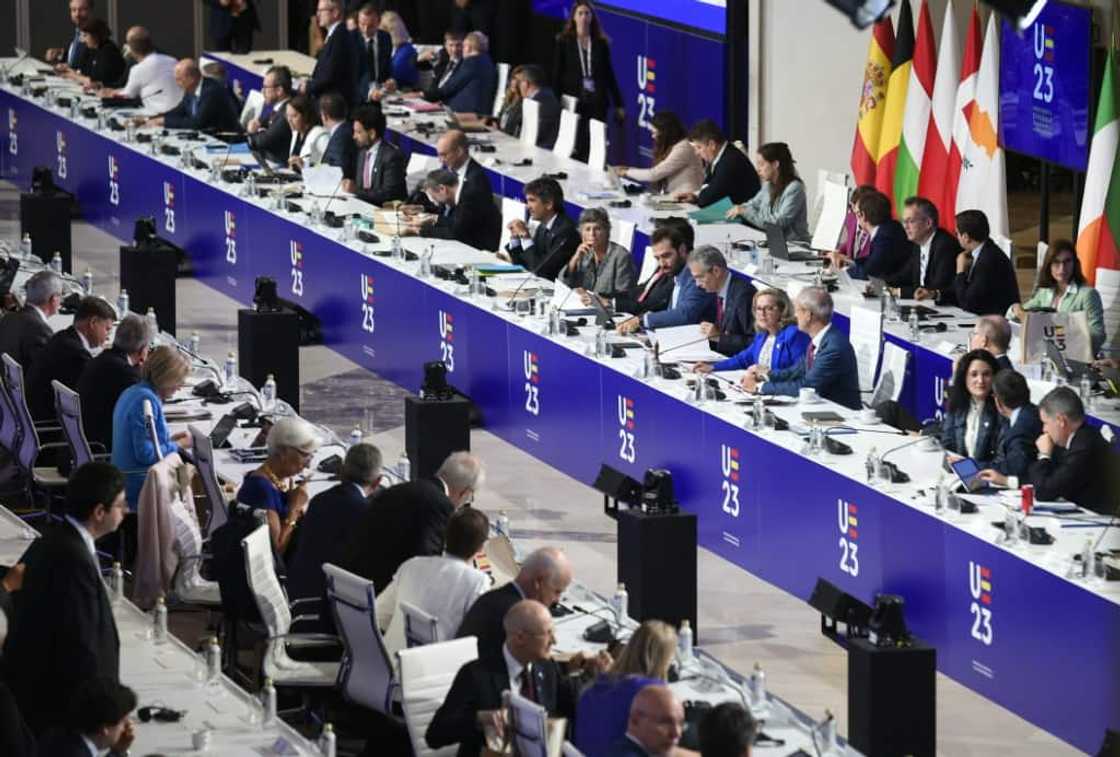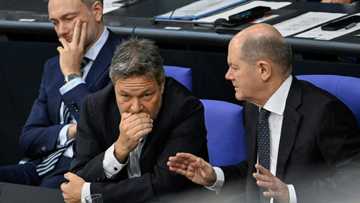EU states make last-ditch effort to back spending rules reform

Source: AFP
EU finance ministers will try to hammer out an agreement over dinner on Thursday to reform bloc-wide spending rules after months of bitter divisions, especially between France and Germany.
Time is running out for the European Union to approve the reform within its self-imposed deadline of the end of the year.
Markets are watching closely and the old rules will kick in again on January 1, 2024, if there is no agreement.
The ministers will meet at 1800 GMT and Spanish finance minister Nadia Calvino has already warned the "open-ended dinner" will mean a "long night".
The European Union wants to make its budget rules more flexible and better enforced, hoping that these changes will make it easier for member states to adhere to.
Known as the Stability and Growth Pact, the rules have been suspended since 2020 to help member states weather two major economic shocks: the coronavirus pandemic and Russia's invasion of Ukraine.
Many countries viewed the rules as too strict, preventing countries from responding to changing circumstances, and this led to calls for reform.
France and Germany, the EU's two economic powerhouses have been at loggerheads over the reform in the past few months.
The main bone of contention between the two is deficit reduction and how much the EU should restrict the investment capabilities of member states with high deficit to GDP ratios.
Under the old rules, member states had to keep debt below 60 percent of gross domestic product and deficit below three percent of GDP.
The European Commission's reform says member states with a deficit above three percent must reduce it by a minimum of 0.5 percent every year until they fall in line.
Paris argues the reform should give wiggle room for how much member states must reduce their deficit annually to take into account investments in key areas like climate and defence following the war in Ukraine.
Flexibility vs rigidness
French finance minister Bruno Le Maire said the 0.5 percent figure for annual deficit reduction was too strict and he would seek a margin of "flexibility" of 0.2 percentage points in the pace of deficit reduction to incentivise investment.
His German counterpart Christian Lindner said Europe needs "more ambition to fight against excessive deficits", although he was optimistic there could yet be a deal.
But Le Maire and Lindner said they agreed on "90 percent of the essential issues".
EU officials, however, warned about complicating the reform to such an extent that it made it harder for countries to follow the rules.
"We need... to respect the commitment to simplification that we took when we launched this process," the EU's economy commissioner, Paolo Gentiloni, told reporters.
Commission executive vice president Valdis Dombrovskis said there was still a chance of an agreement by Friday.
"If all countries approach this process constructively, I think those differences are bridgable. So, I think it's feasible actually to finalise those discussions today and tomorrow," he told reporters before the dinner.
His commission colleague, Gentiloni, put the chances of a deal at "51 percent".
PAY ATTENTION: Follow Briefly News on Twitter and never miss the hottest topics! Find us at @brieflyza!
Source: AFP




